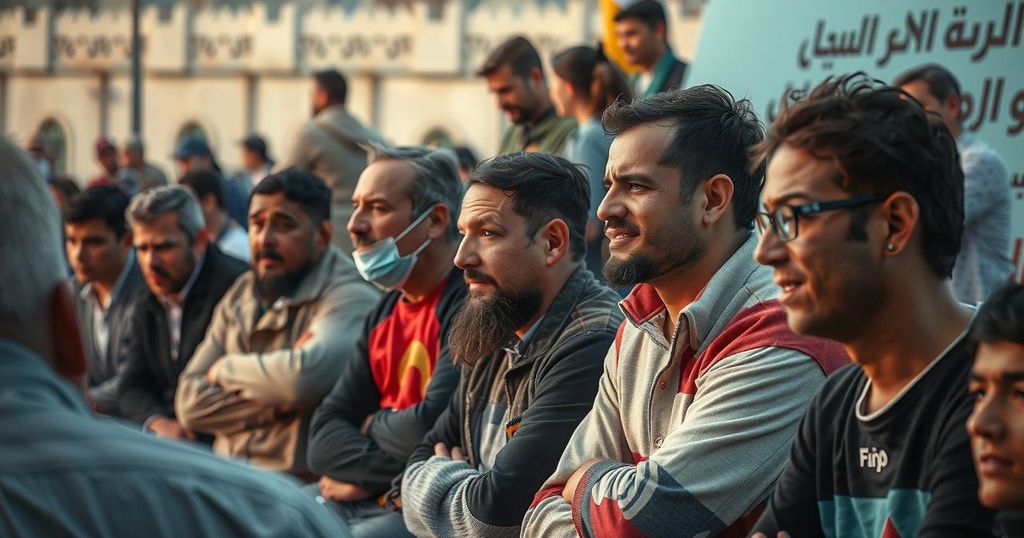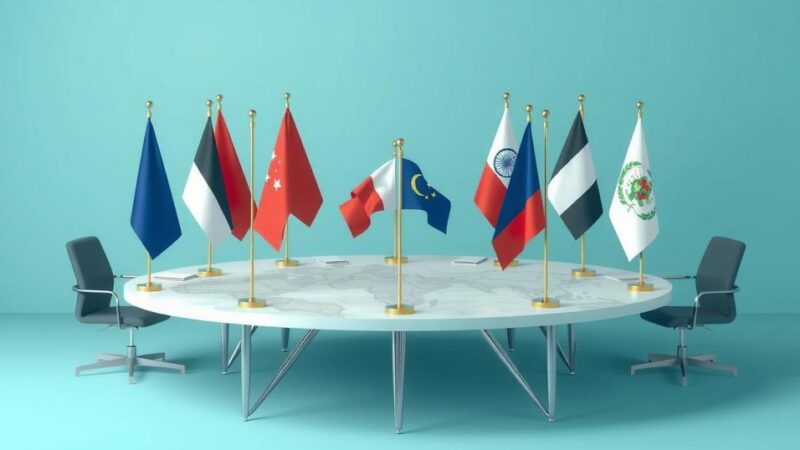In Syria, violent jihadists are expressing frustration over the shifting cultural landscape under new leadership in Damascus. Ahmed al-Sharaa, the new de facto leader, intervened in a local commander’s effort to seize an Ottoman palace used by women artists, demonstrating a critical clash between extremist ideologies and cultural expression. This incident highlights an ongoing struggle over the narrative within Syrian society as it grapples with modern values.
Recent developments in Syria highlight the growing frustrations among violent jihadists amid changing cultural dynamics. The new leader of Damascus, Ahmed al-Sharaa, has recently thwarted an attempt by a local commander to seize a historic Ottoman palace, which had become an artistic refuge for women. Expressing discontent over what he deemed inappropriate behavior, the commander had stationed armed jihadists to evict the resident female artists and dismantle their creative space before the New Year. This incident reflects a broader struggle as jihadists confront elements of modernity and culture in Syria that contradict their extremist ideologies.
Furthermore, this confrontation raises critical questions about the future of jihadist movements in the region, as cultural expressions and women’s rights come under siege, sparking a struggle for control over the narrative within Syria. This clash underscores the tension between extremist elements and a society that seeks to embrace diversity and progressive values.
These dynamics are not occurring in isolation; they resonate within a broader geopolitical context marked by ongoing instability in the region. The shift in local governance, encapsulated in the actions of leaders like al-Sharaa, poses significant challenges not only to jihadist factions but to the traditional power structures that have sought to dominate Syrian society. As external interferences and influences come into play, the reactions from jihadist factions could catalyze further confrontations, complicating an already tumultuous landscape.
The conflict in Syria has evolved since its inception in 2011, transitioning from a civil uprising against the Assad regime to a complex battleground involving various non-state actors, including radical jihadist groups. These groups have often exploited the chaos for territorial gains and implement their strict interpretations of Islamic law. However, with changing local governance and cultural expressions gaining prominence, jihadists increasingly find themselves at odds with a society that seeks to redefine its identity amidst ongoing conflict. The cultural wars, as illustrated by the recent actions against the arts in Damascus, signify a critical juncture in the Syrian struggle, reflecting deeper societal changes and aspirations for freedoms that starkly contrast with extremist ideologies.
The unfolding tensions in Syria illustrate the challenges faced by violent jihadists as they confront a society increasingly leaning towards modernity and cultural expression. The actions taken by local leaders, like Ahmed al-Sharaa, to preserve cultural spaces signify a resistance against extremist views and the desire for progression. As Syria continues to navigate its complex socio-political landscape, the clash between radical ideologies and evolving societal norms will likely remain a focal point in shaping the nation’s future.
Original Source: www.economist.com






